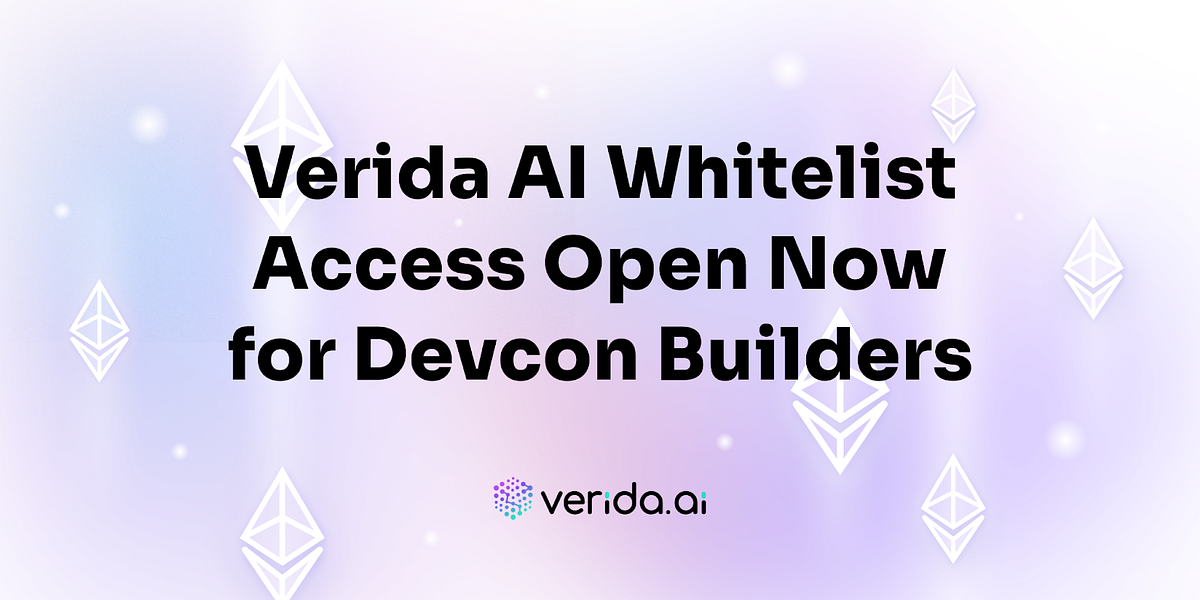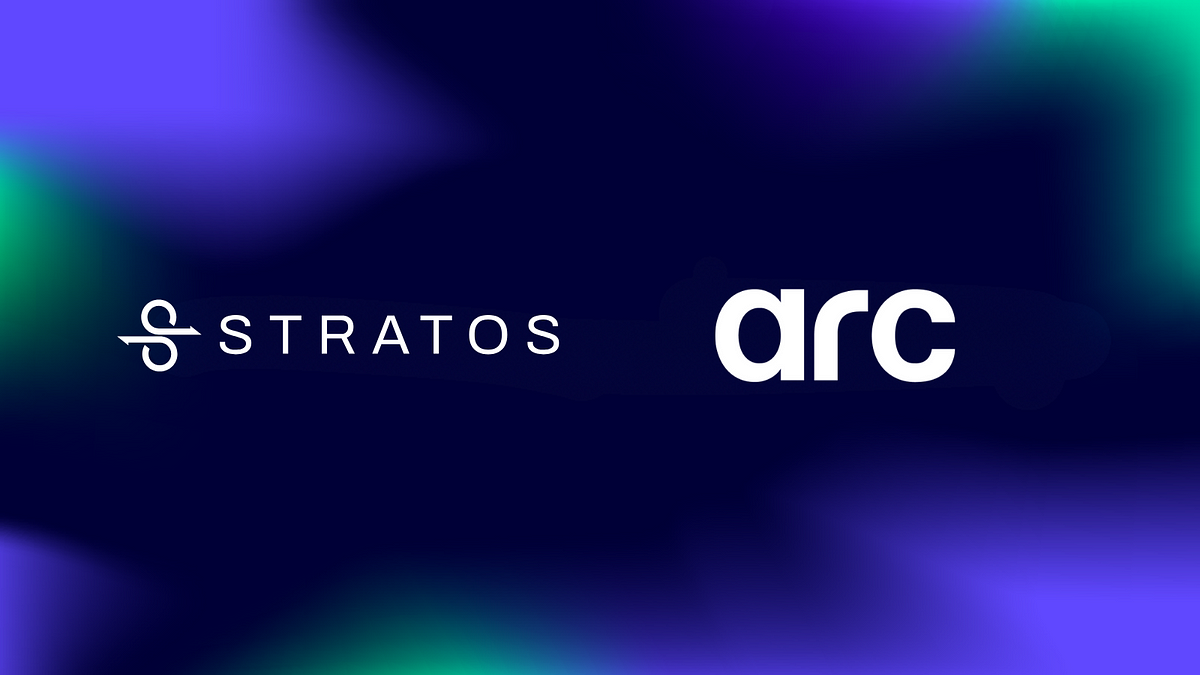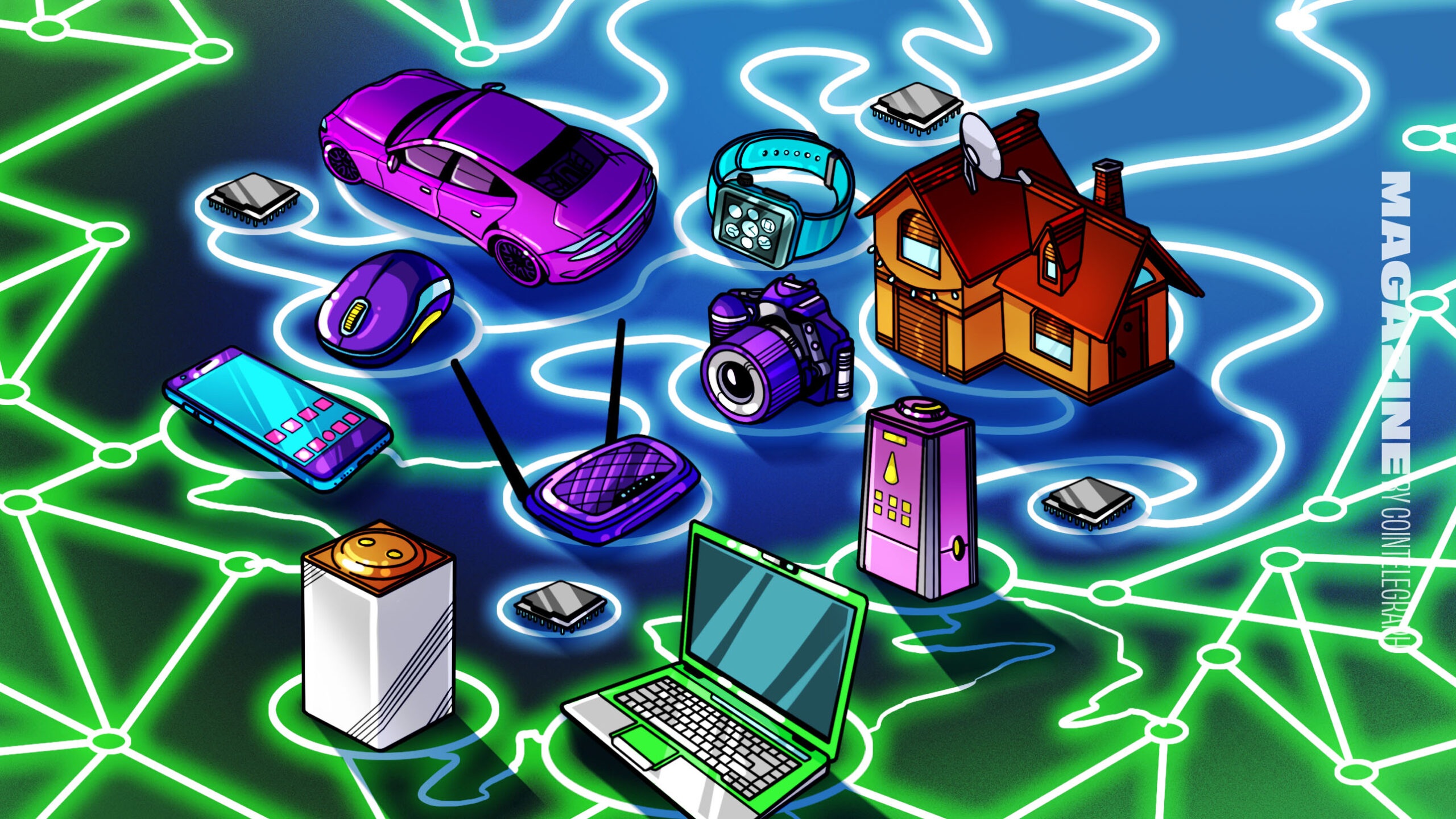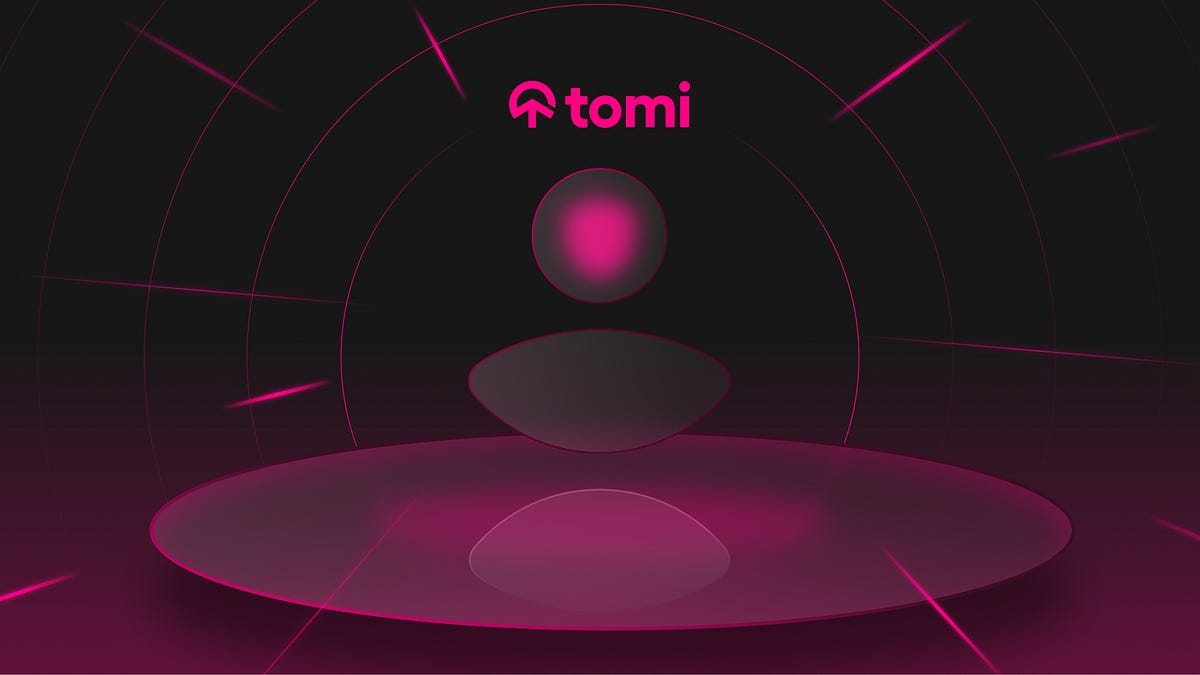Latest DePIN News

a day ago
Harnessing Web3 Technology for Climate Action
In the ongoing battle against climate change, the importance of transparency and accountability in climate action initiatives cannot be overstated. These initiatives, which range from carbon credits to tree-planting campaigns, necessitate robust systems for monitoring and verifying progress. Web3 technology emerges as a transformative solution, utilizing its decentralized and immutable characteristics to provide a secure and transparent framework for tracking eco-friendly projects. By employing blockchain, smart contracts, and decentralized networks, Web3 enhances trust and efficiency in global climate action efforts.
The carbon credit market has long been plagued by issues such as fraud and double-counting, undermining its effectiveness. Web3 offers a remedy by creating a decentralized, tamper-proof ledger for issuing, tracking, and verifying carbon credits. Tokenization ensures each credit is unique and cannot be manipulated, while smart contracts automate the verification process, issuing credits only after independent validation. This system reduces reliance on intermediaries, cutting costs and fostering trust. Decentralized carbon marketplaces exemplify this potential, allowing peer-to-peer trading of carbon credits with complete transaction transparency, thereby ensuring that credits are linked to genuine environmental projects.
Moreover, Web3 technology can significantly improve the tracking and verification of tree-planting initiatives, which are crucial for carbon capture and biodiversity support. Traditional methods often suffer from inefficiencies and potential corruption. By utilizing blockchain, every stage of a tree's life cycle can be monitored, and smart contracts can ensure that funds are released only after independent validation of planting efforts. This decentralized approach not only enhances transparency but also empowers individuals and communities to actively participate in climate action. By tokenizing rewards and utilizing decentralized finance, eco-friendly projects can attract global support, paving the way for a more sustainable future that prioritizes accountability and collaboration.

a day ago
Verida AI Launches Private Data Bridge for Secure AI Integration
Verida AI is at the forefront of integrating user data into artificial intelligence projects while prioritizing privacy and data ownership. Their innovative solution, the Verida Private Data Bridge, allows both individuals and organizations to securely connect and utilize sensitive user data within AI applications. This technology is designed to empower developers by providing a streamlined, one-click integration process that ensures compliance with privacy regulations and eliminates the need for third-party oversight. As AI continues to evolve, Verida AI is committed to creating a decentralized future where data privacy is a fundamental standard rather than an afterthought.
The company recently announced that whitelist access for Verida AI is now open to all builders attending Devcon 2024. This initiative presents a unique opportunity for developers to be among the first to explore the capabilities of the Verida Private Data Bridge. By joining the whitelist, developers can gain early access to powerful tools that facilitate the integration of personal data into AI applications, ranging from healthcare to finance. The Private Data Bridge not only enhances data sharing capabilities but also ensures that users maintain control over their data, further promoting a privacy-first architecture.
Looking ahead, Verida AI plans to introduce several exciting features and programs, including Data Connector Grants aimed at supporting developers who wish to integrate Verida’s data connectors into their applications. This initiative is part of Verida's broader mission to enhance the functionality and scalability of decentralized applications while maintaining a strong focus on privacy. As Verida AI continues to innovate, it invites developers to join in building a future where data privacy and AI innovation go hand in hand, paving the way for transformative advancements in technology.

2 days ago
ARC and Stratos Partner to Enhance Decentralized AI Infrastructure
In a groundbreaking development, ARC has announced a strategic partnership with Stratos, aiming to revolutionize the integration of artificial intelligence (AI) within decentralized infrastructures. ARC, known for its advanced AI platform, focuses on enhancing efficiency and precision across various applications, including AI-driven solutions and Web3 security. The collaboration promises to leverage Stratos' decentralized storage network, which is designed to provide a robust and privacy-centric foundation for ARC's AI capabilities. This synergy is expected to elevate the standards of decentralized applications by combining cutting-edge technology with a secure infrastructure.
The partnership highlights the adaptability of ARC's AI, which can evolve according to user requirements, offering features such as Continual Prompting and comprehensive Code Reviewing. By utilizing Stratos' decentralized framework, ARC aims to ensure that its AI solutions not only meet but exceed the performance of traditional centralized systems. This alignment of advanced AI with decentralized technology is set to create a more efficient and secure environment for developers and users alike, fostering innovation in the Web3 space.
As the landscape of technology continues to evolve, this partnership between ARC and Stratos signifies a pivotal moment for decentralized AI and Web3 applications. By providing builders with a high-performance, trustless infrastructure, the collaboration is poised to set a new benchmark in the industry. Together, ARC and Stratos are committed to driving the next generation of decentralized applications, ensuring that they are equipped with the necessary tools to thrive in a rapidly changing digital ecosystem.

2 days ago
The Challenges and Future of DePIN in Blockchain Technology
Decentralized Physical Infrastructure Network (DePIN) is emerging as a significant narrative in the blockchain space, often described as the "Internet of Things (IoT) with a blockchain twist." These projects aim to connect and manage physical devices, such as energy grids and wireless networks, which generate vast amounts of data. However, the current blockchain infrastructure struggles to keep pace with the demands of DePIN applications. For instance, Helium, a notable DePIN project, transitioned from its own blockchain to Solana in April 2023, yet even Solana's high throughput capabilities are insufficient for real-time computations required by many DePIN projects.
The reliance on offchain computation is a common theme among DePIN projects. As Shuyao Kong, co-founder of MegaETH, points out, existing DePIN applications are not fully onchain due to inefficiencies and costs. While some projects may use blockchain as a marketing strategy, the reality is that they often utilize a hybrid approach, processing computations offchain and recording results onchain. This is particularly critical for executor devices, which require immediate responses, unlike sensors that can tolerate some latency. The use of blockchain in DePIN primarily serves to coordinate activities among numerous devices in a trustless manner, adding a financial incentive layer through token rewards for contributors.
Looking ahead, the future of DePIN projects will likely involve a balance between onchain and offchain processes. Current blockchain architectures are not equipped to handle the real-time demands of DePIN applications fully. However, as scalability improves, we may see an increase in onchain functionalities. Experts suggest that future DePIN projects will evolve towards modular architectures tailored for specific computational needs, such as real-time processing or large-scale data storage. This evolution is essential for the successful integration of blockchain technology into the DePIN ecosystem, ensuring that it meets the diverse requirements of various applications.

2 days ago
IoTeX Price Predictions: A Promising Future in the Crypto Market
The IoTeX coin, currently priced at $0.03817847, is gaining attention as a potential multibagger in the cryptocurrency market. With the crypto landscape showing signs of bullish evolution in 2024, IoTeX (IOTX) is projected to reach a price high of $0.0760 if the positive sentiment continues. However, if the market fails to adopt the technology widely, the price could drop to a low of $0.030. The platform, which focuses on machine economics, supports a range of devices from smart gadgets to autonomous vehicles, making it a significant player in the Internet of Things (IoT) sector.
Looking ahead to 2025, the price of IOTX could climb to $0.099, contingent on successful network integrations and user adoption. Conversely, if the platform struggles to attract users, the price may fall to $0.042. The forecast for the following years suggests a steady increase, with potential highs reaching $0.356 by 2030. This optimistic outlook is based on the assumption that IoTeX will continue to innovate and enhance its interoperability, which is crucial for its long-term success in the competitive crypto market.
Historically, IoTeX has had a volatile journey since its mainnet launch in 2019, experiencing significant price fluctuations. After an initial surge, the price fell drastically before gradually recovering. The project has shown resilience, and with the growing importance of IoT technologies, investing in IOTX appears to be a promising opportunity for long-term gains. As the market evolves, the performance of IoTeX will be closely monitored by investors looking to capitalize on its potential growth.

2 days ago
Roam Spooky Halloween 2024 Event: Win Exciting Prizes!
The Roam Spooky Halloween 2024 Event is set to bring excitement to users from October 28 to November 11, 2024. During this period, participants can enjoy a chance to win surprise gifts valued at over 10,000 USDT. To join in on the festivities, users need to download the Roam app and utilize their Roam Points to redeem mystery gifts. These gifts can range from exclusive items to high-value rewards, making it an enticing opportunity for both new and long-time Roam users.
Among the rewards available during the event are the Roam Rainier MAX60 WiFi Router Miners, designed to enhance the Roam experience while providing high-yield mining capabilities. Additionally, participants can win the Roam Baker MAX30 WiFi Access Points, which offer reliable internet connections and daily rewards. Other exciting prizes include free eSIM data, various amounts of Roam Points that can later be converted into $ROAM tokens, exclusive Halloween stickers, and Harmony ONE tokens, making this event a treasure trove for crypto enthusiasts.
To participate, users must download the Roam app and redeem a surprise gift for just 100 Roam Points. Points can be accumulated by adding new WiFi connections, checking in, and referring friends. The event promises a thrilling Halloween celebration filled with surprises and fantastic prizes. With the event running for a limited time, participants are encouraged to gather their points and take advantage of this unique opportunity to enhance their Roam experience and crypto portfolio. Happy haunting and good luck to all Roamers!

2 days ago
Murad Mahmudov: The Rise of a Memecoin Mogul
Murad Mahmudov, a notable figure in the cryptocurrency landscape, has recently made headlines following the leak of his wallets, which revealed an impressive $25 million in memecoins. Mahmudov, who previously served as the Chief Investment Officer of the now-defunct hedge fund Adaptive Capital, has embarked on a fascinating journey in the world of memecoins. His story is marked by a significant shift in focus, as he transitioned from a traditional trading approach to embracing the burgeoning memecoin market, which he believes holds substantial potential for growth.
In 2020, Mahmudov made the surprising decision to withdraw from social media, leaving his followers in suspense. However, after a two-year break, he returned to the crypto scene with a renewed passion and a strong belief in the future of cryptocurrencies. Earlier this year, he began to advocate for memecoins, identifying them as an underexplored area within the market. By June, he had compiled a list of his top memecoin picks, which quickly gained traction and sparked discussions among crypto enthusiasts. His creation of the “Cult Memecoins” table further solidified his influence, showcasing his bullish stance on this niche.
During the recent Token2049 conference in Singapore, Mahmudov delivered a keynote address on the “Memecoin Supercycle,” emphasizing the impressive performance of memecoins compared to traditional altcoins. He noted that 13 out of the top 20 tokens had outperformed Bitcoin this year, highlighting a shift in trader interest towards memecoins as traditional altcoins faced declining appeal. The revelation of his substantial holdings, particularly a significant investment in the MINI token, has only added to the intrigue surrounding his strategies and insights in the crypto market.

2 days ago
Phantom Wallet Faces Downtime Amid GRASS Token Airdrop Surge
On October 28, the Phantom wallet provider experienced significant downtime lasting nearly three hours, coinciding with a surge in demand for the GRASS token airdrop. Users reported issues such as missing balances and transaction failures on social media platforms. The downtime began at 1:36 PM UTC and was resolved by 4:20 PM UTC, marking the second service interruption for Phantom within the month. Earlier in October, a brief 8-minute outage was recorded on the 3rd. In response to the incident, Phantom's team assured users that they would actively monitor the situation and implement measures to prevent future occurrences.
The GRASS tokens are part of a decentralized physical infrastructure network known as Grass, which operates on the Solana blockchain. This network incentivizes users by rewarding them for lending unused internet bandwidth, which is then utilized to enhance artificial intelligence models. The first airdrop of GRASS tokens will distribute 100 million tokens, accounting for 10% of the total supply. Following the airdrop's launch, the price of GRASS experienced volatility, initially dropping by 28% to $0.65 before recovering slightly to $0.71 at the time of reporting.
Despite the issues faced by Phantom, the Solana network itself remained fully operational throughout the downtime. Data from Solana Status indicated that the network maintained total uptime over the past 90 days. The timing of Phantom's service disruption, just minutes after the GRASS token claim went live, has led to speculation about a correlation between the two events, as users rushed to claim their rewards. This incident highlights the challenges faced by wallet providers during high-demand events in the cryptocurrency space.

2 days ago
CUDOS and ASI Alliance Complete Successful Token and Blockchain Merger
Today marks a significant milestone in the blockchain space as CUDOS and the Artificial Superintelligence (ASI) Alliance have successfully completed their token and blockchain merger. The CUDOS mainnet has officially halted at block height 12,385,627, meaning it will no longer produce blocks. In this process, all data from the final state of CUDOS was exported, and the Fetch.ai (ASI) chain underwent a software upgrade to incorporate all CUDOS data, facilitating the migration of balances. Notably, all CUDOS token holders and delegators have successfully transitioned, along with 30 validators, bringing the total validator count on Fetch.ai’s mainnet to 91.
With the merger finalized, CUDOS holders can now view their new $FET tokens on the Fetch.ai (ASI) mainnet through platforms like Mintscan. To verify the correct amount in their vesting schedule, users can check an active CUDOS explorer, where their $FET balance should reflect the amount divided by 118.344. For further assistance or inquiries, stakeholders are encouraged to reach out through the official channels of CUDOS or ASI, including their respective Discord servers, especially for questions related to the merger and balance conversions.
The collaboration between CUDOS and the ASI Alliance has been ongoing, and this merger paves the way for numerous exciting updates that are set to be announced soon. Both teams are committed to keeping the community informed, so stakeholders should stay tuned for upcoming developments as they continue to enhance their offerings in the blockchain ecosystem.

3 days ago
Decentralized Identity: Paving the Way for Web3 Adoption
The evolution from Web2 to Web3 represents a significant shift in how personal data and digital identities are managed. In the traditional Web2 framework, centralized organizations maintain control over user data, often leading to concerns about privacy and data ownership. With over 5.17 billion active social media accounts, the amount of information controlled by these entities is staggering. Web3 aims to disrupt this model by introducing decentralized identity (DID) systems, allowing individuals to regain control over their personal data and online identities. This decentralized approach ensures that users are the sole owners of their credentials, enabling them to verify their digital identities without relying on centralized authorities.
DID systems offer numerous advantages that can facilitate the adoption of Web3 technologies. Firstly, they empower users by granting them full control over their personal data, thereby eliminating the risk of unauthorized data sales by third-party companies. Additionally, DID simplifies the onboarding process for new users by allowing them to access various decentralized applications (dApps) using a single identity. This streamlined experience reduces barriers to entry and enhances user engagement with Web3 platforms. Moreover, the security features inherent in decentralized technologies provide robust protection against malicious attacks, ensuring that users' private identities remain secure.
As the demand for privacy and data ownership grows, the practical applications of DID become increasingly relevant. For instance, integrating DID into existing Web2 platforms can provide users with password-free logins and facilitate decentralized Know Your Customer (KYC) processes. However, challenges remain, including the need for scalable systems that are user-friendly for individuals unfamiliar with blockchain technology. By addressing these challenges and promoting the use of DID, the Web3 ecosystem can accelerate its adoption, ultimately leading to a digital landscape where users have greater control over their identities and personal data.